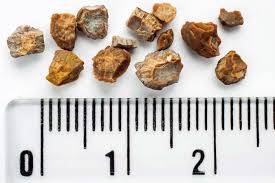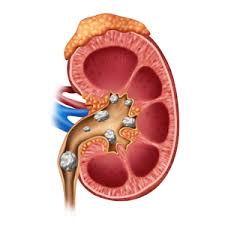 at our Fifth Avenue practice have amassed extensive experience in effectively dealing with nearly the entire gamut of urological issues. We specialize in both surgical and conventional modes of treatment for BPH, kidney cancer, prostatitis, UTI, and a host of other urological conditions. We strictly maintain ethical standards of treatment and carry out day to day operations in a transparent manner.
at our Fifth Avenue practice have amassed extensive experience in effectively dealing with nearly the entire gamut of urological issues. We specialize in both surgical and conventional modes of treatment for BPH, kidney cancer, prostatitis, UTI, and a host of other urological conditions. We strictly maintain ethical standards of treatment and carry out day to day operations in a transparent manner.
Our urologists treat patients with respect and accord the highest level of care possible. We give due credence to our patients’ opinions and never recommend surgery if the condition can be remedied using non-invasive or minimally invasive treatment methods.
What are kidney stones?
Kidney stones, medically known as renal calculi, usually develop inside the kidney as solid crystalline lumps. However, the stones could form anywhere in the upper or lower urinary tract, including the urethra, bladder, kidney, and ureters. Different types of stones can develop within the kidney like calcium stones, Struvite stones, Cystine, and uric acid masses.
Practical treatments for nephrolithiasis or kidney stones
 What are the best treatments for kidney stones? The stone type (calcium, uric acid, Cystine or Struvite), as well as the cause(s), determines the suitable treatment mode.
What are the best treatments for kidney stones? The stone type (calcium, uric acid, Cystine or Struvite), as well as the cause(s), determines the suitable treatment mode.
Removing small stones from the kidney: Treatment options
Our urologists at Fifth Avenue Urology know from experience that the majority of the kidney stones tend to be small. The stones are so small that these drain effortlessly into the bladder via the ureter. Usually, the small stones are removed from the urological system through the urine.
Medical intervention may not be necessary for removing stones, having a size of 0.5mm or less.
The removal of small stones can be expedited by:
Medication
We recommend a range of effective medications like corticosteroids, calcium channel blockers, and alpha-adrenergic blockers for speeding up removal. These medicines serve as muscle relaxants, somewhat loosening the ureter muscles to facilitate the elimination of stones. We also prescribe Advil, Aleve, and Tylenol for pain relief; phosphorus solutions and thiazide diuretics for checking calcium stone formation.
Drinking sufficient water
We advise patients with kidney stones to drink at least 7-8 glasses of water daily to boost up urination. Also, drinking 2-3 liters of water every day produces clear urine and makes it less acidic.
Treatment procedures for getting rid of large kidney stones
Removing large kidney stones usually, call for more extensive or advanced treatment procedures. Urinary calculi that are too big to go out automatically could cause UTIs, kidney damage, or bleed if not removed surgically. Some of the most popular treatment methods include:
ESWL (extracorporeal shockwave lithotripsy)
We suggest ESWL-a non-invasive procedure to patients with specific sizes of kidney stones. This technique makes use of ultrasonic shock waves to generate powerful vibrations for fragmenting the stones into microscopic pieces. Breaking the large renal calculi into very small pieces allow the latter to drain away smoothly with urine.
The procedure normally takes about an hour and causes mild discomfort and pain as the pieces go through the ureter. Therefore, we administer local anesthesia or sedatives for helping patients cope with pain and discomfort.
Ureteroscopy (ureteroscopic surgery)
We resort to ureteroscopy for getting rid of small stones trapped in the bladder or ureter. Such small stones also cause excruciating pain to the patients and could be responsible for causing UTI. Our urologists insert a ureteroscope fitted with a small camera in the ureter via the urethra and urinary bladder to trace the stone.
Sophisticated tools trap the stone and crack it up into tiny bits. After that, we position a stent in the ureter to alleviate inflammation and speed up healing.
Nephrolithotomy
Sometimes we take advantage of percutaneous nephrolithotomy (PCNL) to remove oversized renal stones. We make a small opening on the patient’s lower back for inserting special tools and tiny telescopes for locating and removing the stone.
Conclusion
Kidney stones should not be a cause of concern for patients provided they consult a specialist for their removal. We at Fifth Avenue Urology offer non-invasive and minimally invasive therapeutic procedures for removing kidney stones.
Call today for a consultation:
FIFTH AVENUE UROLOGY
212-675-3186
References
- https://www.healthline.com/health/kidney-stones#types
- https://urology.ucla.edu/kidney-stone-treatment
- https://www.mayoclinic.org/diseases-conditions/kidney-stones/diagnosis-treatment/drc-20355759
- https://www.medicinenet.com/kidney_stones/article.htm
- https://www.msdmanuals.com/en-in/professional/genitourinary-disorders/urinary-calculi/urinary-calculi
